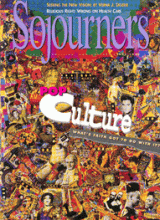In 1970, the truck drivers at Hudgins Moving and Storage, where my father worked as office manager, threatened to join the International Brotherhood of Teamsters. Rather than allow them to organize, Mr. Hudgins, the owner, chose to give the drivers higher salaries. Growing up in a middle-class, conservative Catholic environment in Tennessee, this struggle, which occurred when I was 3, was the closest I ever came to labor unions, their members, or their message.
The subliminal message throughout my childhood was that unions were badthey sucked money from hard-working businesspeople and swindled their members with high dues and inadequate support. In addition, their appeals for justice sounded suspiciously like evil communist schemes.
Attending a liberal Catholic university (and now working at a consulting firm that caters primarily to the world of unions) changed that subconscious message. The feelings of contempt have been transformed to an informed opinion of support. Not only was I informed about César Chávez and the United Farm Workers grape boycott, but I have learned that the labor movements ideals are closely connected with the values of social justice.
Organized Labor and the Church, written by Monsignor George Higgins (with free-lance writer William Bole), strongly promotes this philosophy. Subtitled Reflections of a Labor Priest, the book is less Higgins memoirs and more a reminder that principles integral to the moral character of the institutional and personal church compel the faithful to actively support organized labor.
Higgins, a 78-year-old diocesan priest, can be described as a veritable zealot when it comes to defending workers. He retired from the U.S. Catholic Conference in 1980 after working 36 years in its social action department. He currently teaches at Catholic University in Washington, D.C.
Read the Full Article
